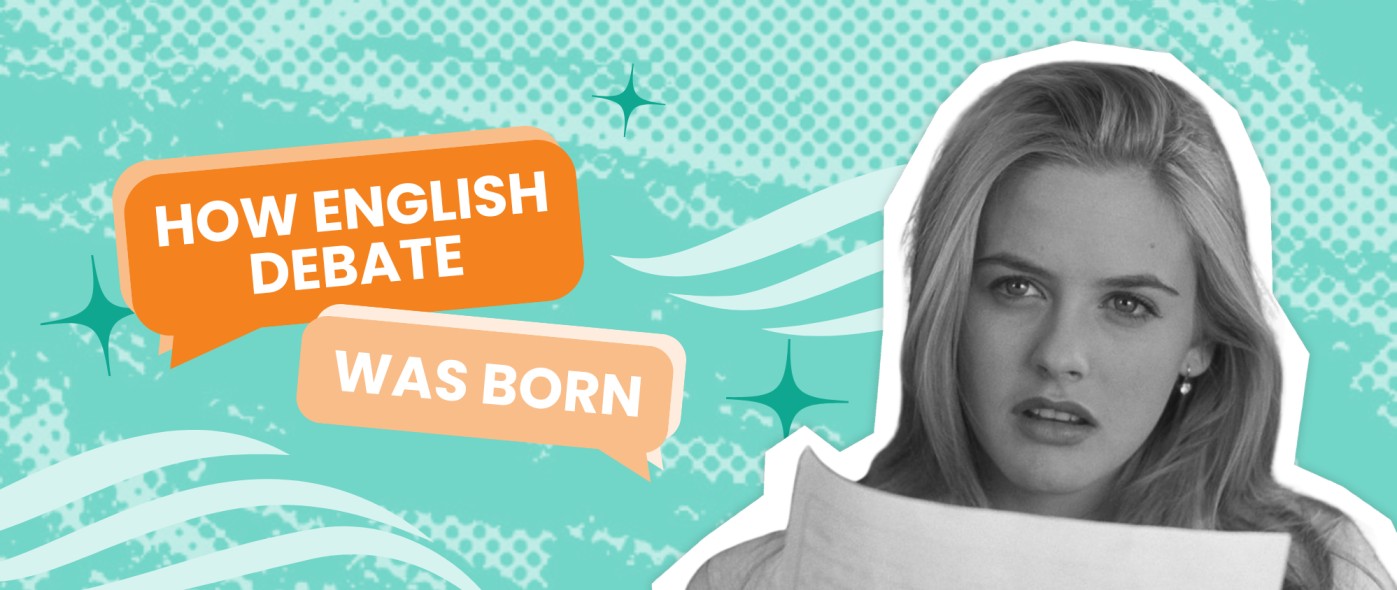HOW ENGLISH DEBATE WAS BORN
English debate comes from a long-standing tradition of public speaking, logical reasoning, and structured dialogue. Its origins can be traced back to public forums and academic societies that shaped what we now recognize as formal debate.
What began as informal public conversations gradually evolved into an intellectual discipline. Over time, debate evolved not only in structure but also in purpose, from casual discussion in local gatherings to a respected academic practice that encourages reasoned argumentation and civic engagement.
Roots in London’s Public Forums
In the 18th century, coffee houses in London served as vibrant hubs for public discussion on politics, philosophy, and society. These spaces brought together people from diverse backgrounds to share opinions, often in an organized fashion. Groups like the Sylvan Debating Club were formed to encourage these structured discussions, which were grounded in logic, civility, and persuasion principles that remain central to English debate today.
These forums reflected the growing demand for free expression during the Enlightenment. Although many debating societies were eventually shut down due to political unrest, they left a lasting cultural legacy. Their emphasis on respectful disagreement, speaker order, and audience engagement laid the groundwork for what would become formal debate in academic settings.
Formalization at Oxford Union
Oxford students established the Oxford Union in 1823 as a response to university restrictions on political discourse. The society provided a space where students could engage in debate freely, without fear of academic punishment. This transformation from informal conversation to structured debate marked a critical turning point in the institutionalization of English debate.
Over the years, the Oxford Union became a model for student-led debating societies across the world. It attracted notable public figures and became known for hosting rigorous debates on controversial topics. By emphasizing intellectual exploration and persuasive communication, the Union helped raise the standards of academic debate and inspire similar platforms in other universities.
Development of Parliamentary Debate
By the late 19th century, the British Parliamentary (BP) style became the dominant debate format in academic and competitive settings. It introduced formal rules, including government and opposition benches, timed speeches, and structured rebuttals. These elements mirrored the actual British Parliament and provided a professional and engaging framework for debate.
Today, the BP format is used globally in major competitions such as the World Universities Debating Championship (WUDC). Its adaptability, clarity, and emphasis on argumentation make it ideal for educational institutions. Through this structure, students develop key communication skills while learning how to build and defend logical positions in real time.
Educational Benefits Today
Academic studies consistently show that debate enhances critical thinking, public speaking, and teamwork. For example, one study in healthcare education found that engaging in debates helped students question assumptions, listen actively, and reflect deeply on opposing views. This type of experiential learning strengthens non-technical skills that are vital in both academic and professional settings.
Other research in higher education further supports these findings. Debate encourages holistic intellectual development by requiring students to analyze multiple perspectives, synthesize evidence, and articulate ideas clearly. It also improves engagement with complex or controversial topics, allowing learners to practice respectful disagreement and independent thought skills that go far beyond the classroom.
References
Amin, R. I., Abdul Aziz, A. S., Paul, M. E., Arham, A. F., Hassan, N. H., Anuar, N. A., & Salleh, A. R. (2024). Debating as an academic tool: Fostering holistic and critical thinking in higher education. International Journal of Academic Research in Progressive Education and Development, 13(4), 1722-1730. https://doi.org/10.6007/IJARPED/v13-i4/23617
Palonen, K. (2021, October 27). Rhetoric of debate: A parliamentary innovation. Intellectual History Journal. Retrieved from
https://intellectualhistory.web.ox.ac.uk/article/rhetoric-of-debate-a-parliamentary-innovation
Withington, P. (2020) Where was the coffee in early modern England? The Journal of Modern History, 92 (1). pp. 40-75. ISSN 0022-2801. https://doi.org/10.1086/707339
Smith, E. A. (n.d.). A brief history of the Oxford Union Society. Oxford Union Society. Retrieved from https://oxford-union.org/pages/our-history
Green, M. (2013, August 7). The lost world of the London coffeehouse. The Public Domain Review. Retrieved from https://publicdomainreview.org/essay/the-lost-world-of-the-london-coffeehouse/


